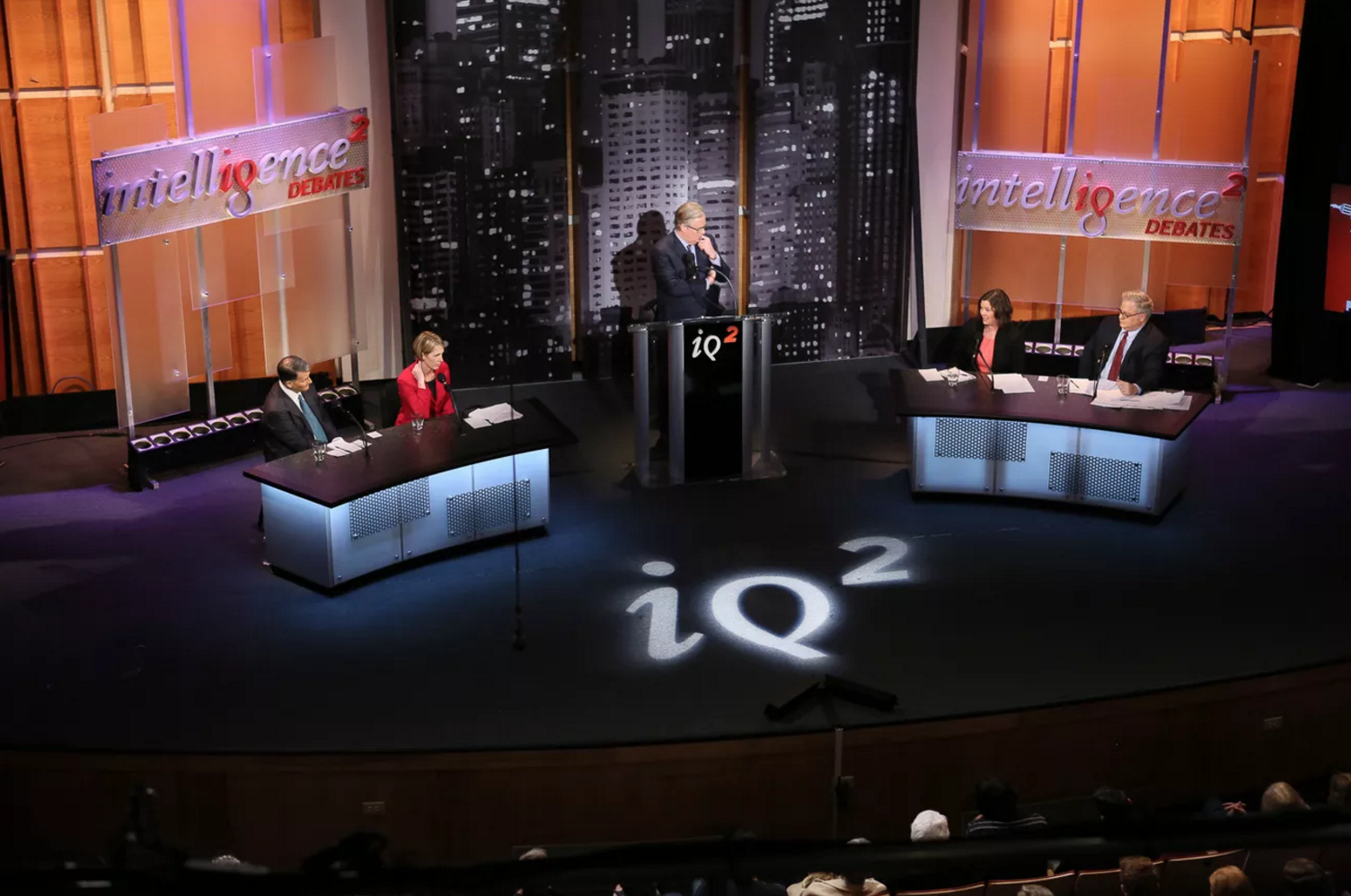Intelligence Squared US Debate
All posts tagged Intelligence Squared US Debate
Give Undocumented Immigrants a Path to Citizenship
by robertrosenkranz on December 9, 2016More than 11 million immigrants are currently residing in the United States illegally, and
the question of what to do with this growing population remains a hot-button issue, thanks in part to the considerable attention it has received in recent months from Republican Presidential Nominee Donald Trump.
At the crux of the issue is whether these millions of immigrants should be granted an opportunity to pursue citizenship so they can become contributing members of American society, or whether they should be punished for entering the country without following proper protocols and sent back to their countries of origin as a result. While there are obvious economic and social implications involved with deporting this population or establishing a path to citizenship, moral and ethical considerations also come into play.
The Debaters
The IQ2US panelists debating for the motion were Angela Kelley, executive director for the Center for American Progress Action Fund, and Marielena Hincapie, executive director of the National Immigration Law Center. Debating against the motion were Steven Camarota, director of research for the Center for Immigration Studies, and Rich Lowry, editor of the National Law Review.
The Research
Proponents for the motion argued that many undocumented immigrants would gladly have pursued a legal path to citizenship if additional factors hadn’t barred them from doing so. For example, it was noted that the U.S. immigration system has not undergone any significant overhaul since 1990, and that the current system allows exactly 5,000 visas to be granted. The number of immigrants seeking work visas far exceeds this number, creating a massive backlog and further complicating one’s ability to work in this country legally. Furthermore, current laws dictate that anyone in the country illegally for six months or more will be penalized by being denied a chance to pursue legal citizenship for 10 years. Given that many of these immigrants have family members and children born in the United States, few are willing to take such a risk.
Proponents also referenced logistics, noting that the nation does not currently have the resources necessary to deport 11 million immigrants, and statistics, referencing the fact that between 72 and 88 percent of U.S. citizens support some type of path to citizenship as opposed to the alternative, deportation.
Opponents of the motion countered the argument that there is no logistical way to deport 11 million people by noting that there also is no logistical way to appropriately process and vet a group of this size seeking citizenship. They also noted that letting illegal immigrants pursue a path to citizenship is essentially rewarding this population for its bad behavior, and in doing so, setting a poor precedent that may lead others to take similar actions.
Additionally, opponents referenced the fact that many less-educated Americans are having to compete with immigrants for jobs, and they also noted that most immigrants receive more in government benefits than they pay in taxes. They argued that more attention must be given to protecting U.S. borders and enforcing existing immigration laws, as opposed to using already-limited resources on helping those who came here illegally obtain citizenship.
Pre-Debate Poll Results
Prior to the debate, 66 percent of audience members were for the motion, 10 percent were against it and 24 percent were undecided.
Post-Debate Poll Results
After the debate, 55 percent of audience members were for the motion, 37 percent were against it and 8 percent were undecided.
READ REMARKS....How to Win at Intelligence Squared US
by robertrosenkranz on April 23, 2016I’m a big fan of the Intelligence Squared US (IQ2US) debate program, so when I learned that the program had compiled data on the 119 debates it had held since 2006, I was eager to dive in. And in doing so, I learned a few things: People do change their minds a fair amount. They are more likely to change their minds on science and technology issues; on politics and economics, opinions tend to be a little more stable, though still somewhat fluid. Also, what appears to be consensus at the start of a debate is often illusory.
Yes, this is a small and nonrepresentative sample with a self-selected audience — and generally thoughtful debaters on both sides. But the relative fluidity of opinion is important. It suggests that ideas and arguments can actually matter, and that when both sides get a fair and equal shot to make their case, minds can indeed be swayed.
READ REMARKS....Intelligence Squared US Debate Analysis: Raise the Federal Gas Tax to Fund Infrastructure
by robertrosenkranz on November 16, 2015Robert Rosenkranz: Intelligence Squared US Debate Analysis
Raise the Federal Gas Tax to Fund Infrastructure
As most Americans may know, a portion of their gasoline bills is a federal gas tax. This tax is 18 [CK] cents a gallon and is used largely for the building and maintaining of roads, highways and bridges around the country.
As noted at the outset of the debate, economists consider the federal gas tax to be as close to a “perfect tax” as can likely exist. This is because it is “reasonably close to a user tax. It’s a fee for using the service…and that is almost the least distorting tax you could have…where the people who are using it are paying for it.” Conservatives might like it for that reason; environmentalists might favor it because it discourages use of fossil fuels.
Despite its near-Utopian economic nature, the federal gas tax remains unpopular, and has not been raised in more than 20 years. This reality is the background for our latest Intelligence Squared debate in which two teams put forth arguments for and against the concept of raising the gas tax to fund transportation infrastructure projects.
READ REMARKS....






